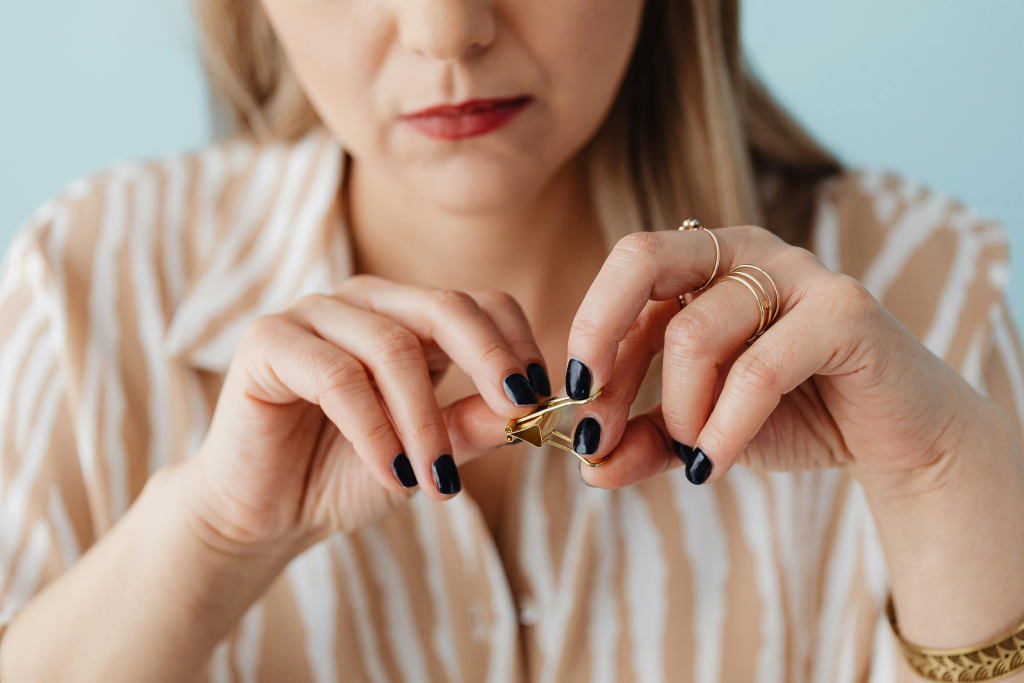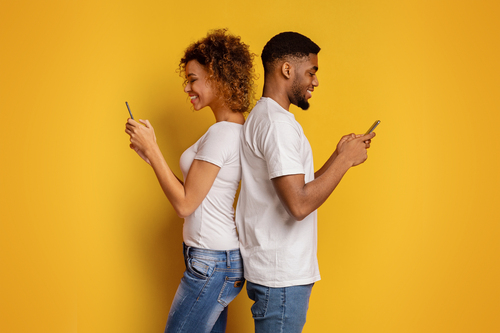
“Your vibe attracts your tribe” but what if your vibe is secretly sabotaging you? In the first-impression economy, it’s usually the unsaid signals, rather than words, that seal the deal or destroy it. The crazy thing? Most individuals have no clue they’re shooting themselves in the foot with negative signals until someone tells them so or worse, until things begin to slip away.

Body language is the last of the unspoken languages, and it can either support your confidence or stealily leech it away. For professionals and urban adults, mastery of these little-used signals is like having an inside superpower. Let’s decipher the secret code of the most common ways that your body language is broadcasting the wrong message and how to rewrite the script for good.

1. Wandering Eyes: The Accidental Dismissal
Looking constantly around the room or letting your eyes drift away while speaking might appear harmless, but it might make others feel ignored. As David F. Khalili, LMFT, would put it, “When you are engaged in speaking to someone and you’re looking around the room the entire time, the other person may feel unimportant or not considered by you.” Even when you are merely distracted, this action can give the impression that you are waiting for a better offer or the person you are communicating with is not your worth.
Make sure to maintain moderate, genuine eye contact, which is an indication of confidence and respect. Psychological experiments discover that not only does it ease others, but it also makes you appear more confident yourself. So the next time you’re talking, keep your concentration on the individual across from you without turning it into a staring game.

2. Fidgeting: The Tell-Tale Sign of Nerves
A drumming hand, drumming fingers, or fidgety changing positions could be small things, but they can get others frustrated and suggest anxiety or fidgeting. In fact, the Adecco Staffing survey cited that 26% of job interviewers attributed fidgeting as a make-or-break for making a hire.
If you catch yourself fidgeting, try grounding techniques: set your feet, cross fingers in your lap, or breathe deeply. Not only will you appear more poised, but you’ll also feel calmer and more in control. Just like the experts, minimizing nervous motions right away boosts perceived confidence.

3. The Phone Barrier: Disconnection in Disguise
It’s no secret phones are the ultimate conversation killer. Shamyra Howard, LCSW, warns, “Our phones keep us connected to everything around us, but sometimes disconnected from those closest to us.” Glancing at your screen mid-conversation can unintentionally send the message that you’re not fully present or that the person you’re with is less important than your notifications.
For co-workers and couples, the answer is simple: hang up and be here. Research shows Americans check their phones 150 times a day or more, but those small moments of being here can provide enormous returns in building trust and rapport.

4. Closed-Off Posture: The Hidden Wall
Hunched shoulders, crossed arms, or holding yourself in a tight hug may send defensiveness or insecurity despite being cold or unsure of where to place your hands. According to Joe Navarro, a retired FBI supervisor, “Most people cross them for self-comfort they’re giving themselves a hug, in effect.” But to others, it may come across as a “do not approach” sign.
Open posture shoulders back, arms relaxed, and chest open signals approachability and confidence. As body language experts suggest, even small tweaks like uncrossing your arms or facing your body toward the person you’re speaking with can transform the energy in the room.

5. Slouching: Confidence Deflated
Slumping in your chair or hunching over your desk might be comfortable, but it makes you appear tired, unfocused, or uncertain. Body-language analyst Tonya Reiman, author of The Power of Body Language, advises, “Sit or stand tall, with your neck extended, ears and shoulders in a line, and chest slightly thrust forward.” This pose not only sends confidence to others, but it will energize you and make you more assertive.
Standing tall is more than a power pose it’s a confidence builder. It just so happens that good posture can actually make you feel more confident and ready to face challenge.

6. Scowling in Concentration: The Unintentional Repellent
Some people are just born with a “resting serious face.” Walking around with furrowed brows or wearing a scowl may have others think you’re mad, unavailable, or bored. Sex therapist and relationship counselor Cyndi Darnell advises that “if people are constantly asking, ‘Are you OK?’ or you feel like they are avoiding you, it’s time to take some personal reflection.”
You’re not required to fake a smile, but being mindful of your facial expressions, especially where others congregate, can help you exhibit warmth and friendliness. Even a calm, plain face can work wonders with your ambiance.

7. Ignoring Digital Cues: The Virtual Vibe Killer
Negative energy isn’t just a one-on-one situation. Failing to reply to emails or messages in a timely manner can be perceived as dismissive or untrustworthy. Shamyra Howard brings up the fact that “Not responding to emails in a timely manner can send off bad vibes. It can come off as being dismissive, even if that’s not the case.”
In response to today’s hybrid environment, virtual body language is just as important as in-person body language. Quick, considerate responses, even a simple “Got it, I’ll be right with you,” will maintain your professional relationships intact and your reputation intact.

The reality is, we all convey nonverbal signals most of us without even realizing it. But with a bit of self-knowledge and some minor changes, you can have body language be your best buddy. From eye contact to standing tall and putting your phone away, these small changes make a big impact on how others perceive you and how you perceive yourself. Confidence isn’t an emotion, it’s a mood you can choose to cast every day.


